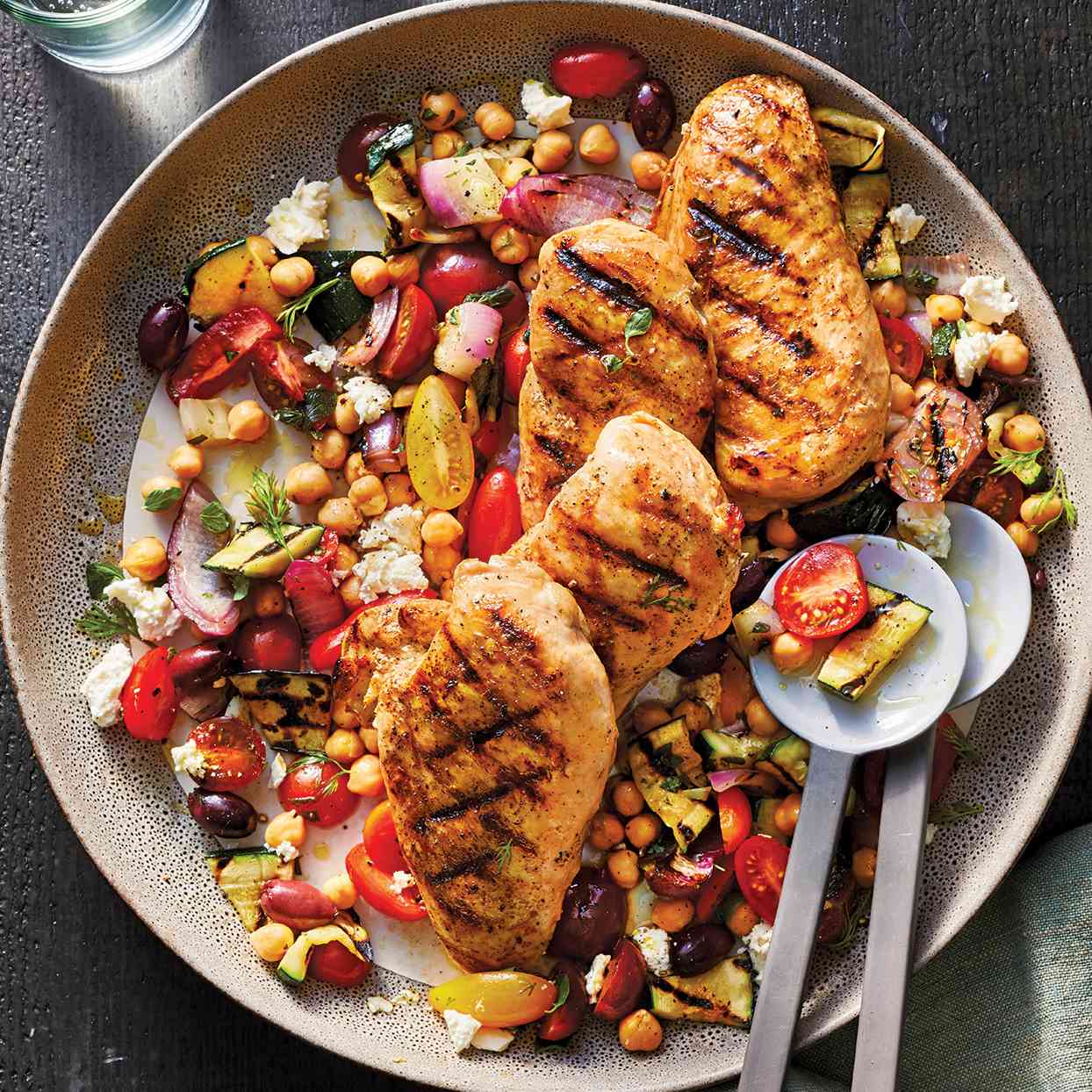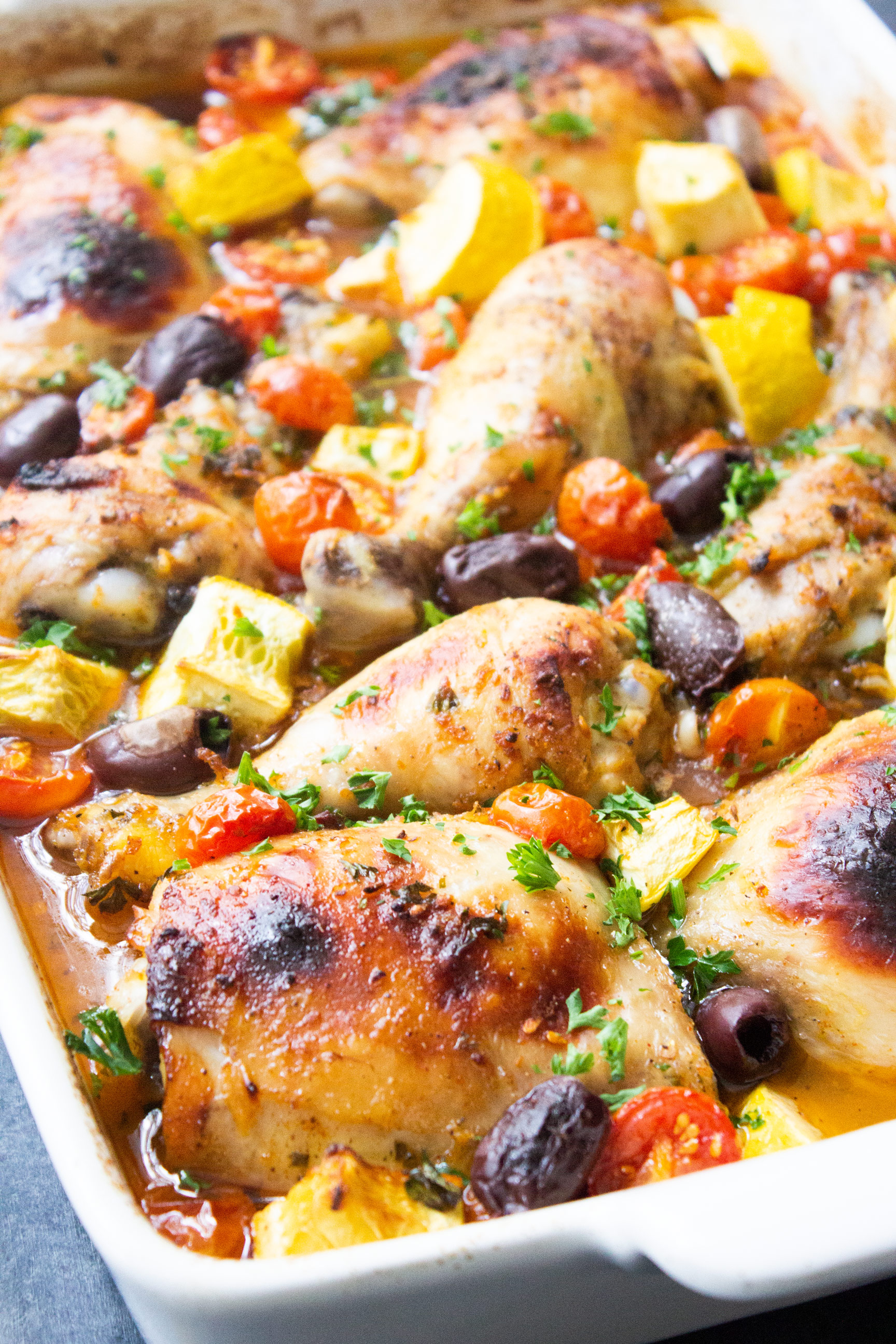Over the past year, Mediterranean diet recipes for dinner have surged in popularity across TikTok and Instagram, partly due to celebrity endorsements and viral cooking trends. From vibrant sheet-pan salmon dishes to cozy one-pot vegetable stews, home cooks are embracing meals that combine fresh vegetables, lean proteins, and heart-healthy fats.
One TikTok user shared, “I tried a Mediterranean dinner recipe last night—salmon, roasted veggies, and quinoa—and I felt full, energized, and satisfied without overeating.”
The appeal goes beyond flavor: studies consistently link the Mediterranean diet to weight management, cardiovascular health, and improved metabolic markers, making it a natural fit for adults seeking sustainable lifestyle changes.

What Are Mediterranean Diet Recipes for Dinner?
Mediterranean diet recipes for dinner are inspired by the traditional cuisines of countries bordering the Mediterranean Sea, including Greece, Italy, and southern Spain. Core principles include:
-
Plenty of vegetables and fruits: Think leafy greens, tomatoes, bell peppers, and zucchini.
-
Whole grains: Brown rice, farro, barley, and whole wheat pasta.
-
Lean proteins: Fish, seafood, chicken, and legumes like chickpeas or lentils.
-
Healthy fats: Extra virgin olive oil, nuts, and seeds.
-
Herbs and spices: Oregano, basil, rosemary, garlic, and lemon juice for flavor without excess salt.
Dinner is typically light, nutrient-dense, and satisfying, promoting satiety while maintaining a caloric balance that can support gradual weight loss.
The diet’s popularity is fueled by social media trends: quick sheet-pan meals, visually appealing bowls, and easy one-pot recipes that allow home cooks to achieve restaurant-quality dinners in under 30 minutes.
Core Mediterranean Dinner Recipes
Below are some easy, healthy Mediterranean diet recipes for dinner that fit into a 30–55-year-old wellness-focused lifestyle. Each recipe includes exact ingredients, measurements, and step-by-step instructions.
1. Sheet-Pan Mediterranean Salmon with Vegetables
Ingredients (serves 2):
-
Salmon fillets: 300 g
-
Zucchini: 150 g, sliced
-
Cherry tomatoes: 100 g
-
Red bell pepper: 100 g, sliced
-
Olive oil: 2 tbsp (30 ml)
-
Lemon juice: 1 tbsp (15 ml)
-
Garlic: 2 cloves, minced
-
Oregano: 1 tsp
-
Salt and pepper: to taste
Instructions:
-
Preheat oven to 200°C (400°F).
-
Arrange salmon and vegetables on a sheet pan.
-
Drizzle with olive oil and lemon juice, sprinkle garlic, oregano, salt, and pepper.
-
Roast for 18–20 minutes or until salmon flakes easily with a fork.
-
Serve immediately with a side of quinoa or whole-grain couscous.
Notes: Avoid overcooking salmon to preserve omega-3 fats.
2. Mediterranean Chickpea and Vegetable Stew
Ingredients (serves 2–3):
-
Chickpeas (cooked or canned): 240 g
-
Spinach: 100 g
-
Carrot: 100 g, diced
-
Onion: 1 medium, chopped
-
Garlic: 2 cloves, minced
-
Olive oil: 1 tbsp (15 ml)
-
Diced tomatoes: 200 g
-
Cumin: 1 tsp
-
Paprika: 1 tsp
-
Lemon zest: 1 tsp
-
Salt and pepper: to taste
Instructions:
-
Heat olive oil in a pan over medium heat, sauté onion and garlic until fragrant.
-
Add carrot, diced tomatoes, chickpeas, cumin, paprika, salt, and pepper.
-
Simmer 15–20 minutes until carrots are tender.
-
Stir in spinach and lemon zest before serving.
Tips: Serve with whole-grain pita or brown rice.
3. Lemony Mediterranean Chicken Bowl
Ingredients (serves 2):
-
Chicken breast: 250 g, sliced
-
Quinoa: 100 g, cooked
-
Cucumber: 100 g, diced
-
Cherry tomatoes: 100 g, halved
-
Kalamata olives: 30 g
-
Feta cheese: 30 g, crumbled
-
Olive oil: 2 tbsp (30 ml)
-
Lemon juice: 2 tbsp (30 ml)
-
Fresh parsley: 1 tbsp, chopped
-
Garlic: 1 clove, minced
Instructions:
-
Sauté chicken with olive oil, garlic, salt, and pepper until cooked through.
-
Assemble bowls with quinoa, vegetables, chicken, olives, and feta.
-
Drizzle with lemon juice and garnish with parsley.
Note: For extra flavor, marinate chicken in lemon juice and olive oil for 20 minutes before cooking.
The Science Behind Mediterranean Diet Recipes for Dinner

The effectiveness of the Mediterranean diet for weight management and wellness is rooted in multiple mechanisms:
-
High fiber content: Vegetables, legumes, and whole grains prolong satiety and reduce overall calorie intake.
-
Protein balance: Lean protein stabilizes blood sugar, supporting sustained energy and muscle preservation.
-
Healthy fats: Omega-3s from fish and olive oil improve cardiovascular health and may enhance fat metabolism.
-
Low energy density: Meals rich in water and fiber but low in refined carbohydrates help reduce total caloric intake naturally.
-
Anti-inflammatory compounds: Polyphenols from olive oil, herbs, and vegetables support metabolic and immune health.
Best Times and Scenarios for Mediterranean Dinners
Mediterranean diet recipes for dinner are most effective when:
-
Consumed in the evening, ideally 2–3 hours before bedtime, to allow digestion without excessive late-night snacking.
-
Part of a balanced day: Pair with a light breakfast and moderate lunch to maintain energy and avoid overeating.
-
For social occasions: These recipes are visually appealing and adaptable for family meals or dinner parties.
-
Quick prep nights: Sheet-pan or one-pot meals make it easy to stick to healthy routines on busy evenings.
Common Mistakes and Precautions
While Mediterranean dinners are generally safe and beneficial, consider:
-
Overusing olive oil: Though healthy, it is calorie-dense; 1–2 tbsp per meal is sufficient.
-
Overloading grains: Stick to recommended serving sizes to avoid excess carbohydrates.
-
Allergies: Check for nuts, dairy (feta), or legumes if sensitive.
-
Medication considerations: High-potassium diets (beans, spinach) may require adjustments for certain heart or kidney medications.
Real-Life Feedback and Experiences
Social media platforms provide insights into how people integrate Mediterranean dinners:
-
Reddit user u/fitmom32: “Switching to Mediterranean dinners helped me reduce evening snacking and I lost 4 pounds in a month.”
-
TikTok creator @wellnesskitchen: “My followers love quick sheet-pan salmon dinners. They’re easy, filling, and the flavors are amazing!”
-
Pinterest boards dedicated to Mediterranean dinners report millions of pins, reflecting ongoing interest and practical adoption.
Flavor Variations and Creative Twists
-
Spicy Mediterranean Chickpeas: Add ½ tsp chili flakes for heat.
-
Herb-infused Salmon: Use fresh dill, thyme, or basil instead of oregano for new aroma profiles.
-
Grain Swaps: Substitute quinoa with farro, bulgur, or barley for texture and fiber diversity.
-
Vegetable Rotation: Roasted eggplant, asparagus, or bell peppers create new color and nutrient variety.
Mediterranean Diet Recipes for Dinner Conclusion
Mediterranean diet recipes for dinner are not magic solutions for weight loss, but they provide a balanced, nutrient-dense, and enjoyable approach to healthy living. With their combination of fiber-rich vegetables, lean proteins, and heart-healthy fats, these dinners promote satiety, energy, and metabolic support. Integrating these meals into a consistent, mindful lifestyle can help individuals achieve gradual weight loss, better digestion, and enhanced well-being.
FAQ: Mediterranean Diet Recipes for Dinner
1. Can Mediterranean dinners help with weight loss?
Yes, their high fiber, lean protein, and healthy fat content promote satiety and balanced caloric intake.
2. Are these dinners suitable for vegetarians?
Absolutely. Substitute fish or chicken with legumes, tofu, or tempeh for a plant-based alternative.
3. How long do Mediterranean dinners take to prepare?
Most recipes range from 20–40 minutes, making them practical for busy weeknights.
4. Can I meal prep Mediterranean dinners?
Yes, dishes like stews, roasted vegetables, and grains store well in the fridge for 2–3 days.
5. Are these meals suitable for people with diabetes?
Yes. The low-glycemic vegetables and balanced protein help stabilize blood sugar levels.
6. Can I substitute olive oil with another fat?
Extra virgin olive oil is preferred for health benefits, but avocado oil can be an alternative.
7. Is it necessary to follow Mediterranean dinners exclusively for results?
No, they work best as part of a balanced, sustainable eating plan throughout the day.
8. How can I make dinners more flavorful without extra calories?
Use fresh herbs, spices, citrus zest, and garlic to enhance taste without adding fat or sugar.